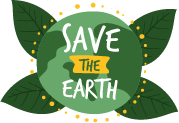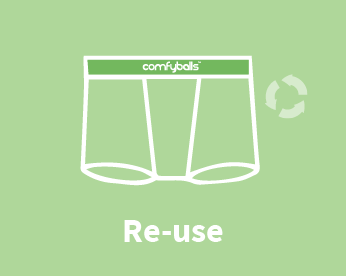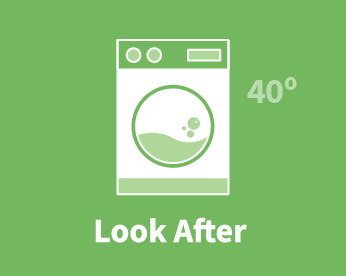This means that we have calculated our total carbon emissions until the product is in the customer’s hands, and we offset these through participating in two carbon offset projects*.
By choosing climate neutral products, you contribute to global climate protection and you support recognised carbon offset projects. You also contribute to achieving the United Nations’ sustainable development goals, such as combating poverty and improving living conditions in new and developing countries. The carbon offset projects have been tested and certified according to international standards, and ClimatePartner’s certification process has been certified by TÜV Austria.
* An average pair of underwear from Comfyballs/Comfy has a Product Carbon Footprint (PCF) of approx. 1,6kg CO2. This corresponds to the carbon footprint of one glass of milk (or 11 glasses of orange juice), or half a cheeseburger. Although this may seem marginal, the sum of many small individual efforts aggregates to measurable impact.

We pay for two carbon offset projects: A hydropower project in a mountain gorilla sanctuary in Congo and a biomass project in India. Comfyballs´ PCF is thus zero (it has been offset).
Read More


Use the product until it falls apart (we are constantly working to make it as durable as possible).

Wash colder (40 degrees is sufficient, even if 60 degrees is fine)

Recycle (all clothing, also underwear and stained or otherwise too worn to wear clothing, should be delivered in a clean state in a bag to Fretex, mark the bag "textile waste" on the outside of the pouch).
According to the UN, the clothing industry releases more greenhouse gases than all the world's planes and ships. And 80 percent of emissions stem from clothing production, not transportation. In addition to the climate impacts, clothing production also cause local microfibre pollution and interfere with already scarce water resources.
Consumers are becoming more conscious of their clothing buying habits. Country of origin and fabric compositions are becoming important, in addition to a focus on prolonged use and recycling. So-called "fast fashion" means that large volumes of clothing are traded for the lowest possible price, which in turn leads to overproduction and huge waste problems. In addition, clothes are often produced in low-cost countries with very few regulations and sanctions related to worker’s rights, groundwater pollution and so on.
Get comfortable... Follow us or sign up for emails









